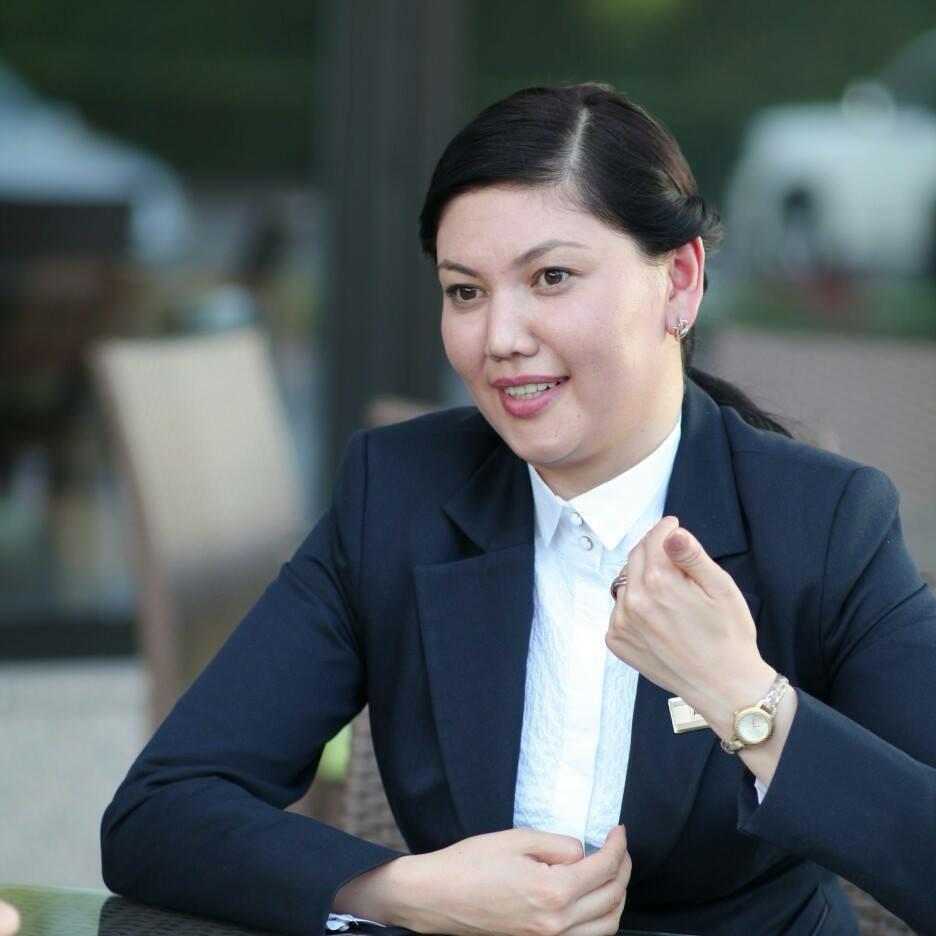As Central Asia continues to become a regional hub for trade and innovation, The Times of Central Asia spoke with Altynai Asanova, the Executive Director of the American Chamber of Commerce in the Kyrgyz Republic, to discuss the investment climate in Kyrgyzstan, economic trends, and future development.
TCA: I see that your background is primarily in hotel management and sales; how did you transition from this role to your current position?
“My background includes 18 years in the hotel business. Ten years at Hyatt, starting in food and beverage and ending in the hotel sales department; then, I worked at the Orion Hotel for the pre-opening and opening stage for about three years. After this, I was hired by Sheraton, one of the Marriott chain hotels, to work on the pre-opening and opening stage for two years. I was still involved with the business audience and wanted to continue working with the stakeholders and companies who know me.”
TCA: How would you describe the hospitality industry in Kyrgyzstan? Is it mainly in Bishkek or other regions?
“It is developing; before, it was only the Hyatt. Now, there are three or four chain hotels in Bishkek. It is good that there are more players in the market. It is developing day by day. The development is mainly in Bishkek, but we have good perspectives for Issyk Kul as long as the roads and infrastructure are completed. The chain hotels are also becoming interested in Issyk Kul. The good thing is that enough businessmen understand and accept the market challenges in Issyk Kul. They know it will not be financially stable at launch since the busy season is only about 50 days. But if the hotels provide full service and comfort, people will travel there for the full season.”
TCA: Stepping away from hospitality, what did American investment in Kyrgyzstan look like ten years ago?”
“Before, there was an American base in Kyrgyzstan. During that time, the hospitality business was amazing. The rates were high considering the charter flights and pilots who needed a place to stay. Now, these rooms are listed at the lowest rates. At that time, the Hyatt was the only five-star hotel in Bishkek, so all the American guests were staying at the Hyatt. The investment climate dropped after the U.S.-Kyrgyzstan agreement ended. There is opportunity, but it goes slowly.”
TCA: Since then, what has changed in the business climate?
“Business-wise, if we look from the angle of the association, we do not have any purely American business; we have franchise members: KFC, Hyatt, Sheraton, and some banks. It would be nice to have purely American [businesses] here.”
TCA: Who are the current major investors in the Kyrgyz market? And is competition relevant to win contracts with local companies?
“China, Russia, Kazakhstan, the Netherlands, and Turkey are the main investors. Before making any contracts or tenders, we need to understand the possibilities of our market, ‘Is our country ready to accept this level of business?’ The first question is whether Kyrgyzstan is ready, and the second is whether some conditions should be changed to attract investors. We must improve the regulatory environment to improve transparency and ensure the country’s investment attractability. Most of our neighbors are interested in becoming deeply involved in our economies. By contrast, the U.S. is physically very far away, and the market has become very tight for them.”
TCA: What are the biggest markets for the Kyrgyz economy in the next 5-10 years? What do you see attracting the most investment?”
“Mining, apparel, tourism, and agriculture are the most attractive sectors. It would be nice to have international companies enter the market because they bring expertise and standards to their sectors. They are not only teaching people but also providing good working conditions and bringing different cultures together, changing the vision of the people. If the people are well-developed, then the organization will be different. Educational exchange programs are also critical; they strengthen the people-to-people ties. Outside expertise and opinion is essential.”
TCA: The One Belt, One Road Initiative has projects in Kyrgyzstan. Will these projects benefit the Kyrgyz economy or make the country more dependent on China?
“We should understand that any kind of these projects are a win-win for both sides. We already have Chinese companies performing well in the Kyrgyz market. It does not mean they are only looking for money here; they are developing and making efforts. They are also providing benefits for their employees. I hope that these projects produce good results for both sides.”
TCA: Are there any sectors you think the international audience should watch besides mining?
“IT. After the situation in Ukraine, many people relocated to Bishkek. Renting apartments and food is cheaper compared to where they come from. Some companies are interested in opening their hubs here, some in Bishkek and some in Issyk Kul. Compared with other Central Asian countries, the quality of the internet is high, and the price is affordable. It is not 5G yet, but the price and quality are attractive.”
TCA: Has there been any legislation or changes to the laws to attract new investment?
“We have frequent changes to the law, but the main thing is not how it looks on paper, but how it works in real life. The government is working on transparency and easy procedures for tax purposes, but how it is realized matters more. Everything should be amazing on paper, but does it work like this in reality?”
TCA: Would you like to add anything else?
“We should understand that every country has different possibilities, resources, people, and mentalities. However, we should understand that we can promote and develop countries only via fruitful partnerships between countries. During my visit to the U.S., I saw that it is a country of opportunity, technology, and innovation, where everyone can strive for success and realize their dreams. For Kyrgyzstan, it should be a shining example. Of course, it isn’t easy, but if we see these possibilities, I think they are achievable; American businesses are the example to follow. Staying positive and focusing on progress and reaching a goal is paramount.”









